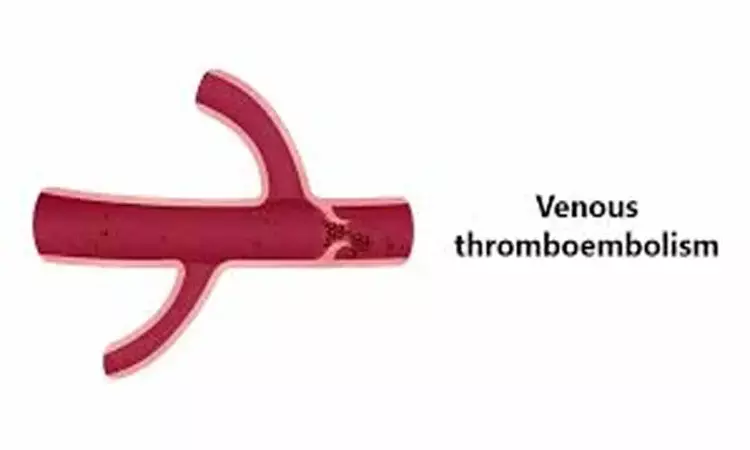- Home
- Medical news & Guidelines
- Anesthesiology
- Cardiology and CTVS
- Critical Care
- Dentistry
- Dermatology
- Diabetes and Endocrinology
- ENT
- Gastroenterology
- Medicine
- Nephrology
- Neurology
- Obstretics-Gynaecology
- Oncology
- Ophthalmology
- Orthopaedics
- Pediatrics-Neonatology
- Psychiatry
- Pulmonology
- Radiology
- Surgery
- Urology
- Laboratory Medicine
- Diet
- Nursing
- Paramedical
- Physiotherapy
- Health news
- Fact Check
- Bone Health Fact Check
- Brain Health Fact Check
- Cancer Related Fact Check
- Child Care Fact Check
- Dental and oral health fact check
- Diabetes and metabolic health fact check
- Diet and Nutrition Fact Check
- Eye and ENT Care Fact Check
- Fitness fact check
- Gut health fact check
- Heart health fact check
- Kidney health fact check
- Medical education fact check
- Men's health fact check
- Respiratory fact check
- Skin and hair care fact check
- Vaccine and Immunization fact check
- Women's health fact check
- AYUSH
- State News
- Andaman and Nicobar Islands
- Andhra Pradesh
- Arunachal Pradesh
- Assam
- Bihar
- Chandigarh
- Chattisgarh
- Dadra and Nagar Haveli
- Daman and Diu
- Delhi
- Goa
- Gujarat
- Haryana
- Himachal Pradesh
- Jammu & Kashmir
- Jharkhand
- Karnataka
- Kerala
- Ladakh
- Lakshadweep
- Madhya Pradesh
- Maharashtra
- Manipur
- Meghalaya
- Mizoram
- Nagaland
- Odisha
- Puducherry
- Punjab
- Rajasthan
- Sikkim
- Tamil Nadu
- Telangana
- Tripura
- Uttar Pradesh
- Uttrakhand
- West Bengal
- Medical Education
- Industry
Study finds up to 24 percent of esophagectomy patients can develop VTE post-operatively

Boston, MA - A new study presented today at the AATS 101st Annual Meeting, found that the percentage of patients undergoing esophagectomy for cancer who suffer Venous Thromboembolism (VTE) post-operatively is much higher than previously reported, with as many as 24 percent suffering from Deep Vein Thrombosis (DVT) or Pulmonary Embolism (PE). Six-month mortality for patients with VTE was 17.6 percent compared to 2.1 percent for those without.
Venous Thromboembolism (VTE) is a common, potentially preventable post-operative complication leading to significant morbidity and mortality. Esophagectomy patients are amongst the highest risk groups for VTE due to disease burden, magnitude of surgery and high rate of perioperative morbidity. The study aimed to quantify the true incidence of VTE post esophagectomy, associated risk factors, and the impact of VTE on patients' outcomes.
Patients undergoing esophagectomy for malignancy in eight tertiary-care centers between November 2017 and March 2020 were enrolled in a prospective cohort study. All patients received guideline based VTE prophylaxis until hospital discharge and underwent bilateral lower-extremity venous-doppler ultrasonography (DUS) prior to discharge, then Computed Chest Tomography-pulmonary embolus protocol (CT-PE) as well as DUS at 30 and 90-days post-op, and DUS at 60 days. D-dimer levels were measured at each interval and patients were followed for 6 months postoperatively.
According to Yaron Shargall, M.D., FRCSC, professor and chair of the division of Thoracic Surgery at McMaster University and study leader, despite the fact that all patients were treated with VTE prophylaxis according to best practices, a high proportion would have been discharged home with VTE under standard protocols, or would have developed VTE after discharge. "When we followed this cohort of patients for six months, we saw VTE events develop mostly within one month of surgery, but also as long as six months. Even more importantly, we found that those who developed VTE had a seven-fold increase in mortality at six months, the reasons for which are yet to be determined" says Shargall. "We are yet to define if active screening for VTE in all esophagectomy patients is really justified, and if a longer duration of VTE prophylaxis, beyond the hospital stay, will improve patients' outcomes" he added.
Hina Zahid Joined Medical Dialogue in 2017 with a passion to work as a Reporter. She coordinates with various national and international journals and association and covers all the stories related to Medical guidelines, Medical Journals, rare medical surgeries as well as all the updates in the medical field. Email: editorial@medicaldialogues.in. Contact no. 011-43720751
Dr Kamal Kant Kohli-MBBS, DTCD- a chest specialist with more than 30 years of practice and a flair for writing clinical articles, Dr Kamal Kant Kohli joined Medical Dialogues as a Chief Editor of Medical News. Besides writing articles, as an editor, he proofreads and verifies all the medical content published on Medical Dialogues including those coming from journals, studies,medical conferences,guidelines etc. Email: drkohli@medicaldialogues.in. Contact no. 011-43720751


